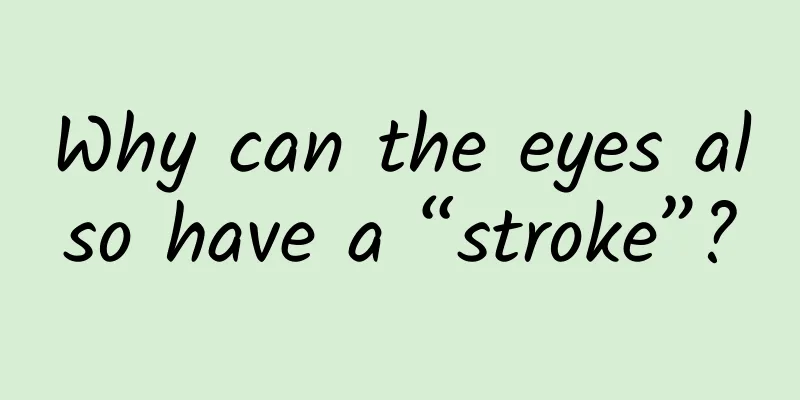Why can the eyes also have a “stroke”?

|
We often hear about the dangers of stroke, and perhaps we have learned about the related first aid and prevention measures. But perhaps you don’t know that the blood vessels on our retina are also at risk of “blockage”. Retinal vein occlusion is a common retinal vascular disease that can seriously damage vision and may cause blindness. Symptoms of retinal vein occlusion Retinal vein occlusion is so dangerous, so what are the symptoms of it? Painless vision loss, dark shadows in front of the eyes, visual distortion, or partial visual field loss may all be signs of retinal vein occlusion. The specific diagnosis needs to be confirmed by going to the hospital based on vision, intraocular pressure, and fundus examination. Who is at risk for retinal vein occlusion? Generally speaking, this disease can occur in all age groups, but most patients are middle-aged and elderly. This is related to the high-risk factors of retinal vein occlusion. In most cases, it is closely related to systemic diseases such as cardiovascular and cerebrovascular diseases, arteriosclerosis, hypertension, hyperlipidemia, and diabetes. Some eye diseases such as primary open-angle glaucoma, ischemic optic neuropathy, hematological changes, and some drugs may also cause retinal vein occlusion. If the patient is younger, it may be related to inflammation or autoimmune vasculitis. Not only do you need to treat your eyes, but you also need to go to the internal medicine department to check for systemic inflammation. How to prevent retinal vein occlusion As mentioned above, the pathogenesis of retinal vein occlusion is relatively complex, so controlling risk factors and early detection and early treatment are of great significance for diagnosis and treatment. The four key points of prevention are recommended for collection! 1) It is very important for high-risk groups to have regular fundus examinations. At the same time, abnormal fundus blood vessels can also reflect early systemic chronic diseases, so it is recommended that middle-aged and elderly people pay attention to regular fundus examinations. 2) Eat a light diet and exercise properly. Eating more low-fat, low-cholesterol, high-vitamin fiber foods and exercising moderately under the guidance of a doctor will help control various indicators. 3) People with three highs should take medications and test indicators strictly according to the doctor's instructions. 4) Quit smoking. Smoking can cause irreversible damage to blood vessels and increase the risk of blood vessel blockage. |
<<: What are the small seeds on raspberries? (They are edible seeds like banana seeds)
>>: A family of three was poisoned after eating leftover salad! Should we stop eating leftover food?
Recommend
Women who exude this smell are the healthiest
Everyone has their own unique smell, some are lig...
Is cervical cancer hereditary?
Cervical cancer is a malignant tumor disease that...
What to do if you feel dizzy and swollen during menopause
Everyone experiences menopause when they get olde...
What is the reason for a woman's headache on the left side?
What are the causes of left-sided migraine in wom...
What should women eat to treat Qi and blood deficiency?
I believe that many female friends have visited m...
What are the causes of liver damage in pregnant women?
Pregnancy is a very important stage. The symptoms...
CNBC: Survey shows the most popular companies: Twitter and Facebook are at the bottom
CNBC recently conducted a survey, and the results...
How much weight can edema cause during pregnancy?
For pregnant women, edema is almost unavoidable, ...
Back pain and weak limbs? Nine tips to easily deal with sub-health
Back pain and weakness in the limbs are sub-healt...
Does normal vaginal discharge have an odor?
Leucorrhea is a common vaginal discharge in women...
What is the treatment for breast cramps?
Women may suffer from a variety of breast disease...
What tests should be done to diagnose breast hyperplasia?
As a common breast disease among female friends, ...
What causes uterine cysts?
Many women will have some gynecological diseases ...
Do boys like their girlfriends to touch them? How does he feel when his girlfriend touches him?
For adolescent boys and girls, many things are st...









